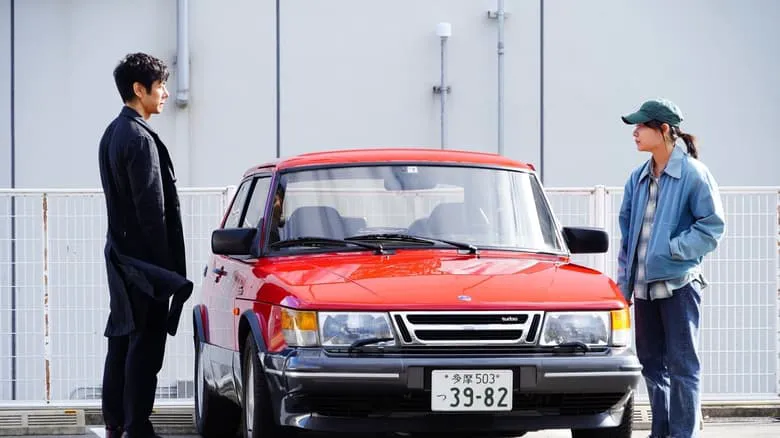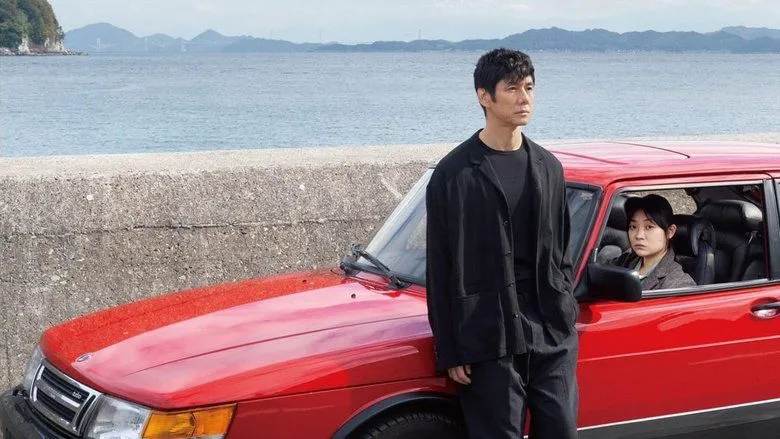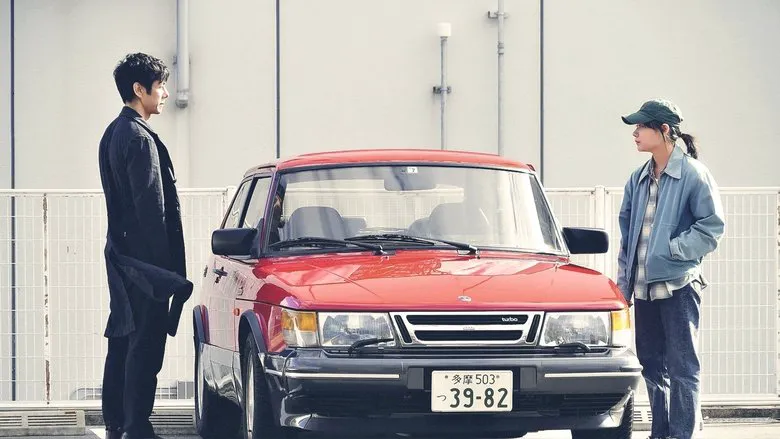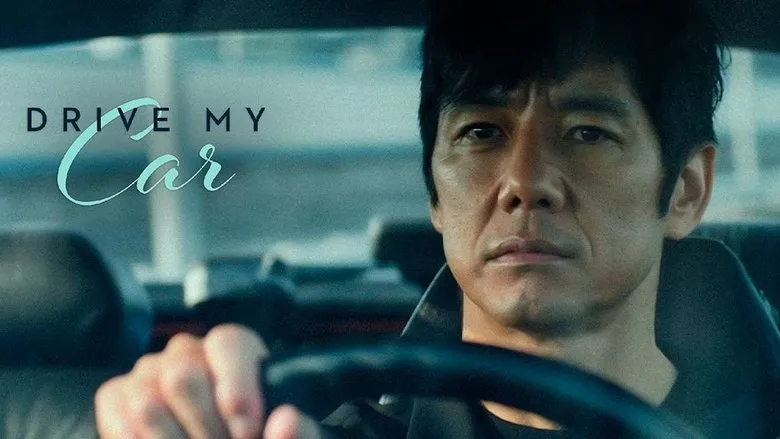“Drive My Car”: A Profound Journey Through Loss and Human Connection
“Drive My Car,” adapted from Haruki Murakami’s short story in “Men Without Women,” is a cinematic masterpiece that delves into the intricate layers of grief, betrayal, and the unexpected connections that bind us. The film centers on Yusuke Kafuku, a renowned stage actor and director, grappling with the loss of both his daughter and his wife, Oto. Oto, a talented screenwriter, is not only his partner but also his creative inspiration. During his long commutes between cities, Kafuku finds solace in listening to Oto’s recordings, using them to rehearse lines and immerse himself in his roles.
 The serene yet melancholic atmosphere beautifully captured in a scene from “Drive My Car.”
The serene yet melancholic atmosphere beautifully captured in a scene from “Drive My Car.”
However, Kafuku’s world is shattered when he discovers Oto’s affair with Koji Takatsuki, a young actor he himself introduced to her. Instead of confronting her, he internalizes the pain, a decision that haunts him when Oto unexpectedly passes away from a brain hemorrhage.
Two years later, Kafuku accepts an invitation to direct Chekhov’s “Uncle Vanya” at a theater festival. There, he’s assigned Misaki Watari, a quiet and reserved driver, and is forced to confront Koji Takatsuki, the man who had an affair with his wife. Through his interactions with Watari, Kafuku begins to unravel secrets about his past, secrets he never knew about Oto. He seeks answers from Takatsuki, grappling with the incomprehensible question of why Oto, who seemed so devoted to him, would betray their bond.
A Hallmark of Japanese Cinema: Exploring the Depths of the Human Spirit
“Drive My Car” embodies the quintessential elements of Japanese cinema, offering a deep exploration of human relationships. Even with a runtime approaching three hours and a seemingly unhurried plot, the film’s power lies in its rich themes and deliberate pacing, which allows the emotional resonance to fully immerse the audience.
 The film intimately explores the complex relationship between Kafuku and the people surrounding him.
The film intimately explores the complex relationship between Kafuku and the people surrounding him.
The film cleverly intertwines the worlds of theatre and life, suggesting a profound connection rather than simply portraying life as theatrical. The bond between Kafuku and Oto transcends personal relationships, family dynamics, and even dramatic narratives, reaching a complex question about philosophic and inner peace.
The Car: A Mobile Space for Confession and Introspection
The car in “Drive My Car” is more than just a mode of transportation; it acts as a space for vulnerability and introspection. Within its confines, characters are forced to confront their emotions and each other. Whether practicing lines listening to a recording or through direct conversation, emotions and hidden resentment find a way of coming to light. This makes encounters that would otherwise seem commonplace be charged with a high level of tension.
 The classic red Saab becomes a pivotal space for emotional confrontation and healing.
The classic red Saab becomes a pivotal space for emotional confrontation and healing.
Finding Meaning in the Face of Loss
The film’s powerful statement of enduring the unbearable is voiced by Kafuku. When asked about the emotional core of “Drive My Car”, Kafuku expresses the feeling of wanting to find a way to deal with unbearable grief, hoping that the future will perhaps be slightly more bearable. This sentiment sits at the epicenter of the films exploration of suffering, perserverance, and most importantly, finding happiness after great grief.
 Kafuku’s struggle to cope with loss is central to the film’s emotional impact.
Kafuku’s struggle to cope with loss is central to the film’s emotional impact.
A Resounding Success: Acclaim and Audience
“Drive My Car” has garnered widespread acclaim, earning the Academy Award for Best International Feature Film and the Cannes Film Festival Award for Best Screenplay. However, its meditative and emotionally demanding nature makes it a film for particular viewers. Those willing to delve into themes of self-healing, loss, and emotional complexity will find the it particularly compelling.
 The film received numerous accolodes and was recognized for its excellence in storytelling and direction.
The film received numerous accolodes and was recognized for its excellence in storytelling and direction.
“Drive My Car” is truly an modern masterpiece. It has left an undeniably positive impact on the hearts and minds of film crititcs. Whether it be outwardly or inwardly, the human condition is heavily explored using multiple methods.